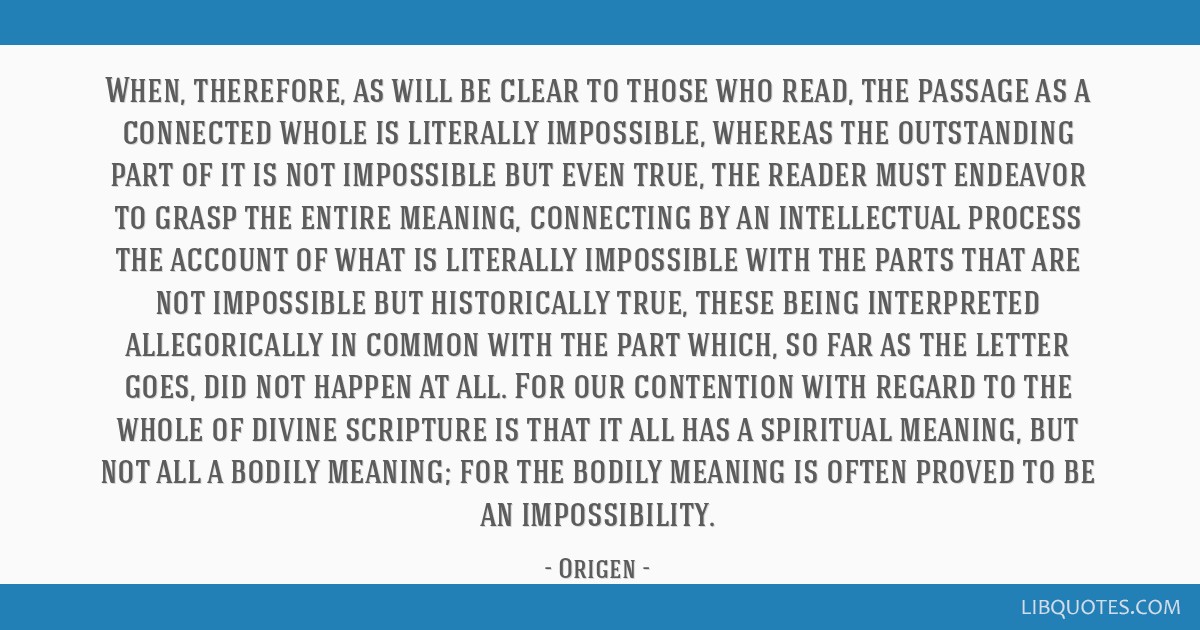When, therefore, as will be clear to those who read, the passage as a connected whole is literally impossible, whereas the outstanding part of it is not impossible but even true, the reader must endeavor to grasp the entire meaning, connecting by an intellectual process the account of what is literally impossible with the parts that are not impossible but historically true, these being interpreted allegorically in common with the part which, so far as the letter goes, did not happen at all. For our contention with regard to the whole of divine scripture is that it all has a spiritual meaning, but not all a bodily meaning; for the bodily meaning is often proved to be an impossibility.
How divine scripture should be interpreted, On First Principles, book 4, chapter 2, Readings in World Christian History (2013), p. 75























